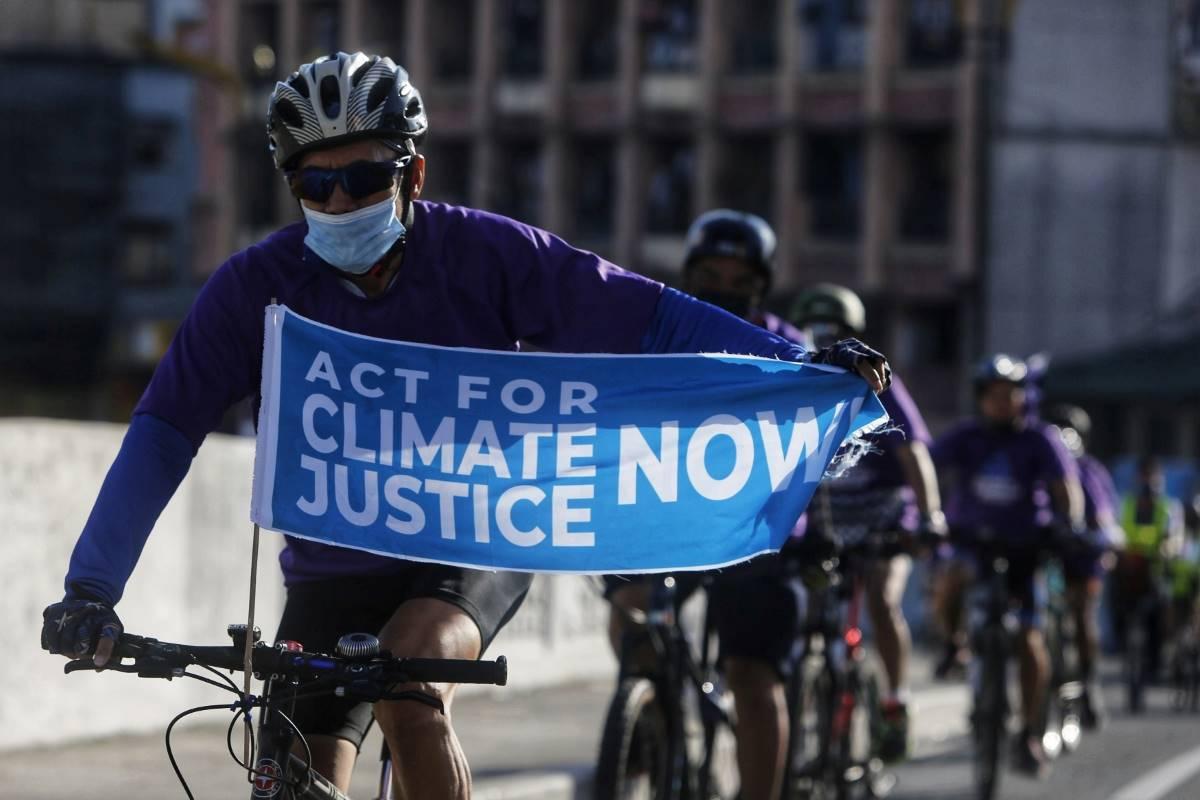‘Ultimate no-brainer:’ UN officials, top scientists renew call for strong political action to address climate change

Top officials and leading climate scientists from the United Nations renewed their call for strong political commitments and urgent climate action, as they echoed a warning over the rapidly closing window to address catastrophic climate change.
In its synthesis report released on Monday, the UN-backed Intergovernmental Panel on Climate Change (IPCC) said that the knowledge, technology, and financing for climate adaptation and mitigation are already available, but are hampered by the lack of political will and the need for effective climate governance.
“We already know how to proceed on many fronts,” said IPCC chair Hoesung Lee in a press briefing in Interlaken, Switzerland, where representatives from nearly 200 governments approved the findings in a weeklong session.
“The report identifies tried and tested policies that can work in diverse contexts to reduce emissions and advance climate resilience,” said Lee. “But they need to be scaled up and applied more widely.”
Monday’s report is the culmination of the IPCC’s work in its Sixth Assessment Cycle, summarizing key points from six major reports it has released since 2018. These have served as definitive handbooks on climate change, drawing from extensive global studies on climate science and bringing together thousands of climate scientists and experts around the world.
In a recorded address, UN secretary-general Antonio Guterres called the synthesis report a “survival guide for humanity” to defuse the ticking climate time bomb.
He urged developed countries that are historically responsible for climate change, such as the United States, to commit to reaching net zero by 2040 — a target earlier than the rest of the world. Reaching net zero means striking a balance between the anthropogenic emissions pumped into the atmosphere and those removed in a specific time period.
Solutions within reach
The IPCC report said the decisions to be made within the next 10 years will spell out whether the world can still meet its ambitious target of limiting global heating to 1.5C above pre-industrial levels.
Findings show the world has already warmed more than 1.1C. Without drastic emission cuts from all nations, the planet could be on track to more dangerous levels of warming, which would translate to more extreme climate impacts that would push humanity to the brink.
But the solutions are already within reach. The IPCC said the systemic change needed to achieve rapid emissions reduction and transformative climate adaptation is unprecedented in scale, but not necessarily in terms of speed.
Among the responses outlined in the report are the substantial reduction in fossil fuel use, promotion of widespread electrification in energy and transport, redesign of cities to become more climate-resilient while producing lesser emissions, advancement of sustainable agricultural practices, and the conservation and protection of ecosystems.
These would also have other benefits to other sectors and systems, not just on climate action. For instance, the promotion of public transport and active mobility, such as walking and cycling, could also benefit public health and safety.
“ This synthesis report… tells us we already have the technology and know-how,” said UN Environment Programme executive director Inger Andersen during the briefing. “It’s the ultimate no-brainer.”
Guide for PH climate action
Scientists said social and climate justice should be at the center of these adaptation and mitigation strategies, ensuring that the decisions and actions are inclusive and would benefit the most vulnerable.
“Climate resilient development is advanced when actors work in equitable, just, and inclusive ways to reconcile divergent interests, values, and worldviews, toward equitable and just outcomes,” the report read.
Rachel Herrera, a commissioner of the Climate Change Commission who joined the Philippine delegation in the IPCC session, said the latest report will “provide the impetus for urgent climate action” in the Philippines.
“As knowledge gaps remain, these IPCC reports serve as critical reference points for our policymakers to heed the science on the gravity of climate change,” she said in a statement sent to reporters on Tuesday.
Local climate and environmental groups called on the Philippine government to heed the IPCC’s call to shift away from fossil fuel use. Coal, oil, and gas continue to dominate the Philippine energy mix.
“This report underscores how climate action — and demands for climate reparation — needs to be front and center of Philippine government policy in order for future generations of Filipinos to have a chance to survive,” said Greenpeace senior campaigner Virginia Llorin.
More national and local climate studies are also needed to make communities more resilient to climate change, said climatologist Lourdes Tibig, a lead author of IPCC reports on climate and the oceans and cryosphere and a climate science advisor to the Institute for Climate and Sustainable Cities.
“We have to act on climate change with far more urgency and ambition to protect millions of lives,” she said. “It is high time that world leaders heed the science for us to have a fighting chance to survive and thrive.” — LA, GMA Integrated News




